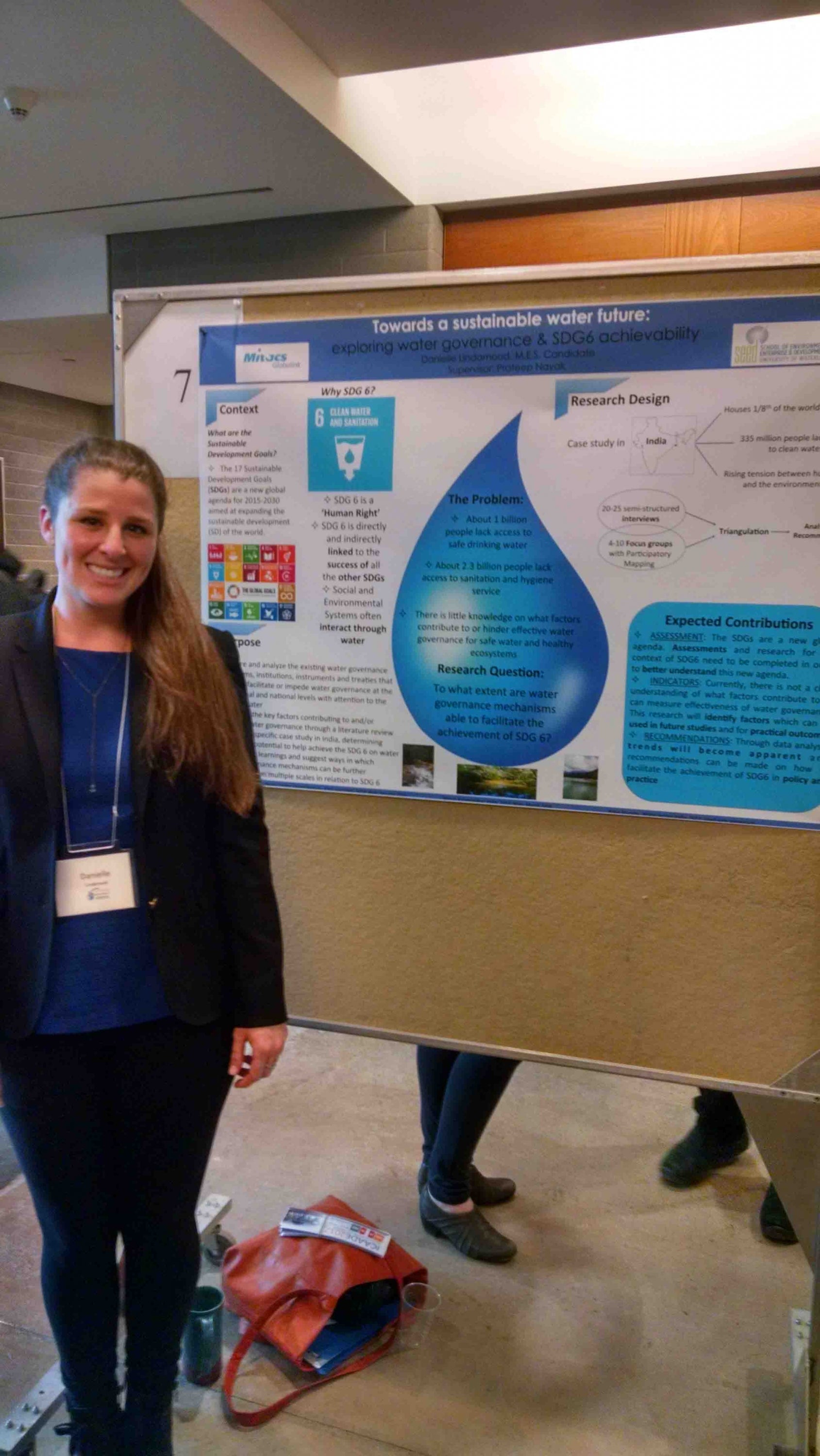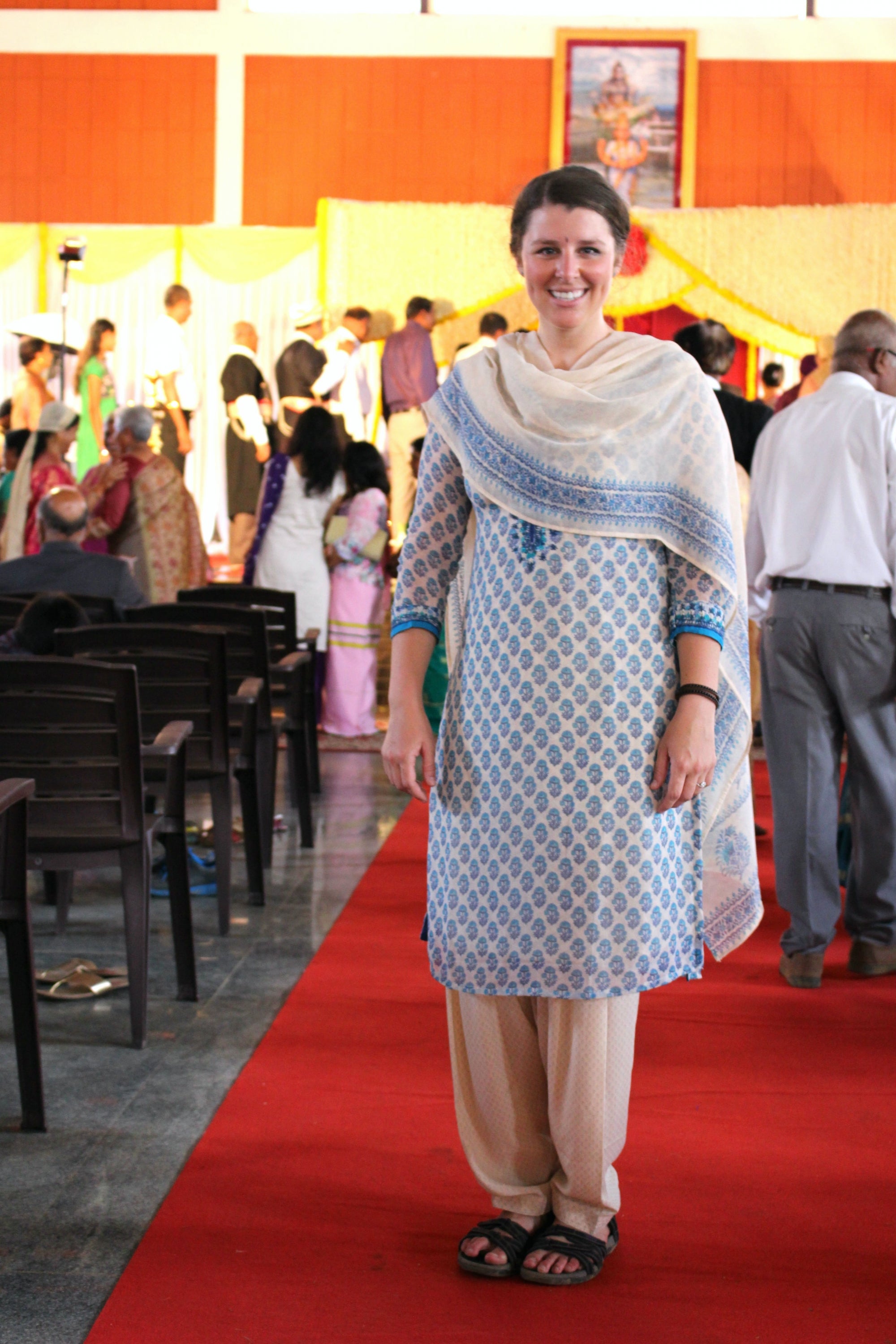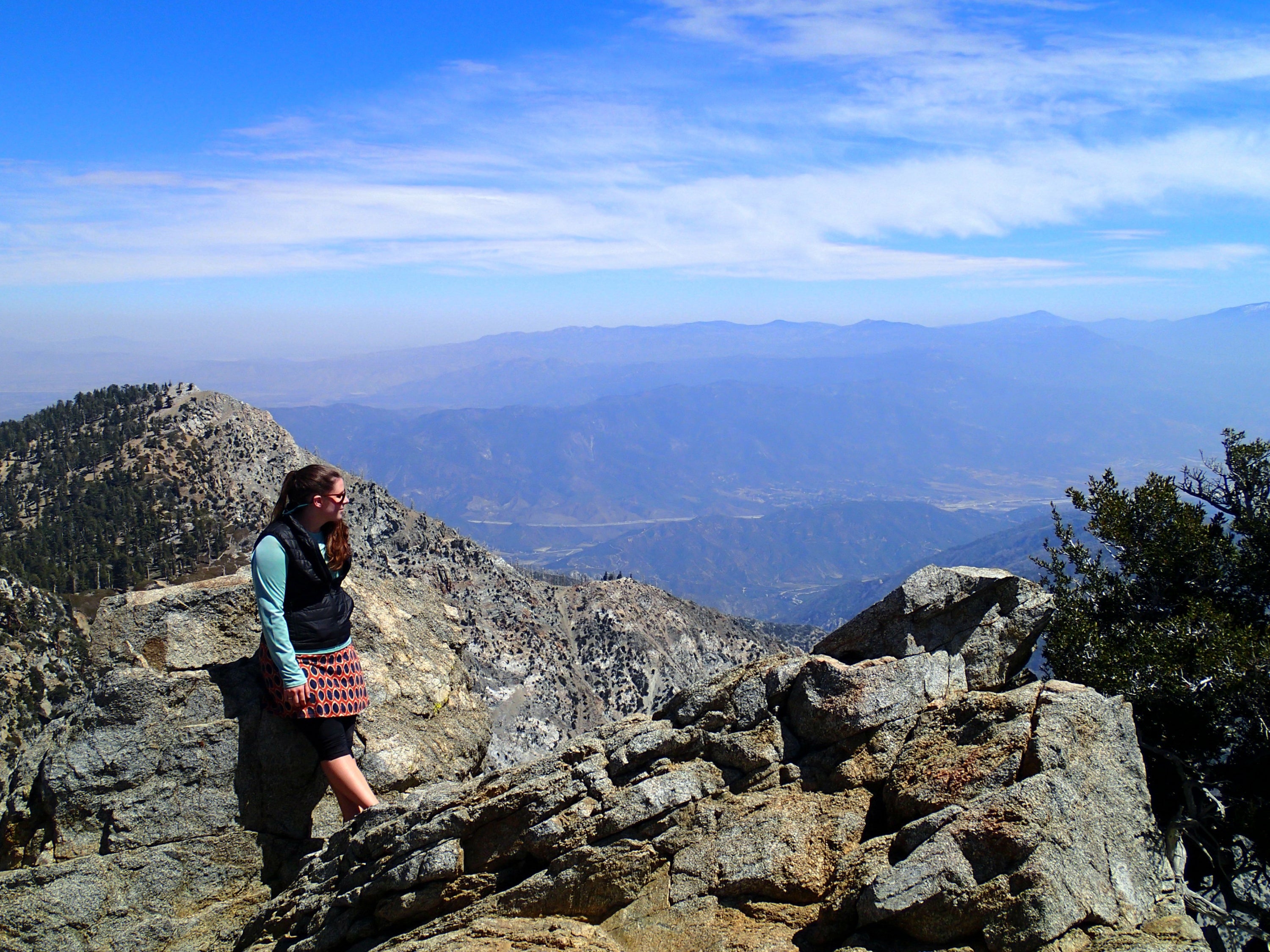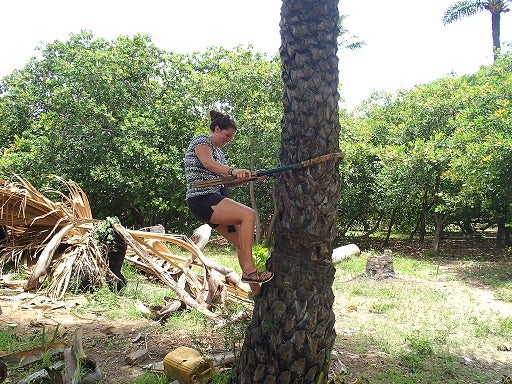
We sat down with Dani to hear more about her interests, thoughts on the industry and advice for students.
What is your area of interest in the Sustainability Management program and completing the Collaborative Water Program through the Water Institute?
Since I was very young, I knew I wanted to work within development studies of some sort. Throughout high school and my undergraduate degree, I grew to also be really passionate about the environment and climate change. There are not many programs in the world right now that offer an integrated approach to development and environmental studies, but Sustainability Management through SEED is one of the few. I'm particularly interested in sustainable development, social-ecological systems (the interactions and feedback between human and environmental systems), and social entrepreneurship.
What was your academic and working background entering this degree?
I have two bachelors degrees in Global Studies and French from California Lutheran University. In my undergrad, I interned for 3 different amazing social enterprises, creating change in the lives of people all around the world. I have had the privilege of working in private education in California at a learning center and additionally, I was able to spend some time working with low-tech wastewater treatment systems in The Gambia, West Africa through Agua Inc. Global Development Group.
In regards to your research, what are you energized by right now?
Currently, I'm particularly passionate about my thesis topic and the opportunity to do my fieldwork in India. My research engages with the UN's Sustainable Development Goals (SDGs). As a global agenda, I think the SDGs are an amazing initiative and I feel privileged to work with SDG 6 - universal access to clean water and sanitation - as part of my thesis. I also feel extremely excited and energized to complete my fieldwork in Bangalore, India over the Spring 2016 term.

What are you seeing in your area of interest that is positive and hopeful?
My time in graduate school has given me numerous reasons to be hopeful for the future. As we increasingly come up against 'wicked problems' (tough problems that do not have clear solutions), the need for collaboration becomes more and more apparent. Looking at sustainable development, the SDGs, social entrepreneurship, and my experience in the Collaborative Water Program, I believe the call to collaboration is being answered in force. This is particularly apparent amongst the faculty, staff, and students in the Faculty of Environment, the Water Institute, and SEED. My colleagues at UW in this way make me feel hopeful and empowered to take on the wicked problems of the world with such knowledgable and passionate people by my side.
What do you think the biggest challenge related to your area of interest?
I think one of the biggest challenges related to my area of interest is about cooperation and interdisciplinary work. The SDG 6 on universal access to clean water and sanitation is meant to address issues of public health, social justice, gender equality, climate change, and more. Therefore, there's an obvious need for the cooperation and collaboration of interdisciplinarity in order to create sustainable solutions to problems like water quality and access. As such, experts (within academic, public, and private sectors) need to communicate and understand each others' work to try to address these issues more holistically and avoid shifting the problem. It is exceedingly challenging though when the historical culture of these sectors has emphasized competing against one another. Also, it can be difficult to communicate one's work in a generally understandable way. And as an icing on the cake, interdisciplinarity takes a significant amount of time because of the time investment needed to: research a specific problem; truly create a holistic understanding among experts and generalists; propose, deliberate on, and refine suitable solutions; and address the practicalities of implementation. So while we are increasingly recognizing the necessity of collaborative work, it is inherently challenging.

The most interesting part of this to me though is that cooperation and interdisciplinarity are as much an opportunity as they are a challenge. As the culture in academia shifts from individualization to one of collaborative efforts and interdisciplinarity, there are notably larger opportunities to create sustainable change working with others, to learn and understand the world from different perspectives, and to solve complex problems. I see SEED as a testament to the progression of interdisciplinary work, especially since SEED exists because of the challenges that arise from complexity concerning humans, the environment, and sustainable development. As such, the 'biggest challenge' in my area of interest is more a 'call to action' to me. It's a challenge to those who want to affect change in the world and it's a challenge that is being answered by students, faculty members, governments, enterprises, NGOs, and others across the world who are putting their efforts into collaborative work. I'm proud to be a part of the students answering this call at UW with SEED and I hope to continue to see the challenges facing myself, my field, and the world as the opportunities they often are.
Do you have any advice or insights for students who are in this field but not sure how to move forward?
Sustainable Development or sustainability studies in general encompass such a wide variety of topics and while many people are passionate about the larger subject, they have a hard time figuring out which particular area they want to work in. This was absolutely true for me, too, as I felt I could be happy or passionate about working in a lot of different areas.
For current or future students interested in sustainable development that are not sure how to move forward, I would say explore: take a class to learn about a new topic, try rock climbing, travel far & wide, and have meaningful conversations with as many people as you can.

What does your dream job look like?
In complete honesty, I am not 100% sure. There are many things I'm passionate about and would love to do. I love to write, so I would be extremely happy to do a job that involved writing but on the other hand, I love to be out interacting with people and doing things with my hands, so I would also love a job that allowed me to be out in the field working. Fundamentally for me, I don't think it's the position that makes it a dream job, but rather it's the company and what the position is working toward. I want to be helping people and planet alike with a company, NGO or government office where I'm proud to be an employee, working on something I find meaning in. That would be the dream for me.
Connect with Dani at dlindamood@uwaterloo.ca